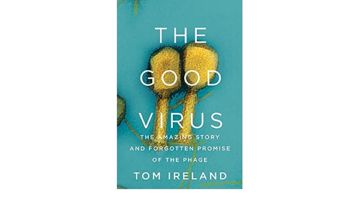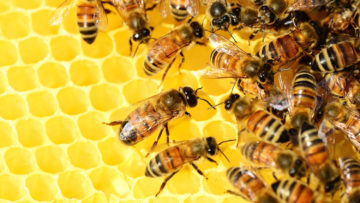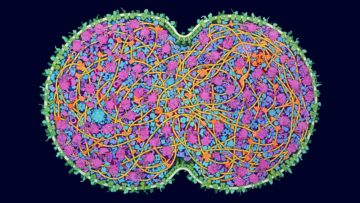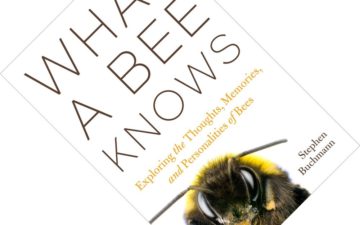Samantha Harvey at The Guardian:
 “All our body wants is to sleep, it wants to leave us, head back to the stable, a worn-out horse,” writes Marie Darrieussecq, at which I, a worn-out human, think yes. In a recent interview, Darrieussecq reflected on how much of her work is concerned with inhabiting. Who has a right to inhabit this planet, she asks, and who doesn’t? Though she was talking about her novel Crossed Lines, in which a Parisian woman finds her life becoming bound up with that of a young Nigerian refugee, she could just as well be referring to Sleepless (Pas Dormir in the original French), a book that is – what? A memoir/interrogation/painting/song of insomnia, her own and that of others. It’s a book about where, why, how we sleep and don’t sleep; about how to find a place in the world where sleep can happen, a stable for the worn-out horse.
“All our body wants is to sleep, it wants to leave us, head back to the stable, a worn-out horse,” writes Marie Darrieussecq, at which I, a worn-out human, think yes. In a recent interview, Darrieussecq reflected on how much of her work is concerned with inhabiting. Who has a right to inhabit this planet, she asks, and who doesn’t? Though she was talking about her novel Crossed Lines, in which a Parisian woman finds her life becoming bound up with that of a young Nigerian refugee, she could just as well be referring to Sleepless (Pas Dormir in the original French), a book that is – what? A memoir/interrogation/painting/song of insomnia, her own and that of others. It’s a book about where, why, how we sleep and don’t sleep; about how to find a place in the world where sleep can happen, a stable for the worn-out horse.
Sleepless isn’t a book that’s straightforward to convey, at least not briefly. On the page it’s fragmentary, footnoted and studded with photos and illustrations.
more here.

 While recent events have provided a painful reminder of the very bad viruses that prey on us, Tom Ireland’s “The Good Virus” is a colorful redemption story for the oft-neglected yet incredibly abundant phage, and its potential for quelling the existential threat of antibiotic resistance, which scientists estimate might cause up to 10 million deaths per year by 2050. Ireland, an award-winning science journalist, approaches the subject of his first book with curiosity and passion, delivering a deft narrative that is rich and approachable.
While recent events have provided a painful reminder of the very bad viruses that prey on us, Tom Ireland’s “The Good Virus” is a colorful redemption story for the oft-neglected yet incredibly abundant phage, and its potential for quelling the existential threat of antibiotic resistance, which scientists estimate might cause up to 10 million deaths per year by 2050. Ireland, an award-winning science journalist, approaches the subject of his first book with curiosity and passion, delivering a deft narrative that is rich and approachable. It is well, at certain hours of the day and night, to look closely at the world of objects at rest. Wheels that have crossed long, dusty distances with their mineral and vegetable burdens, sacks from the coalbins, barrels and baskets, handles and hafts for the carpenter’s tool chest. From them flow the contacts of man with the earth … The used surfaces of things, the wear that the hands give to things, the air, tragic at times, pathetic at others, of such things—all lend a curious attractiveness to the reality of the world that should not be underprized.
It is well, at certain hours of the day and night, to look closely at the world of objects at rest. Wheels that have crossed long, dusty distances with their mineral and vegetable burdens, sacks from the coalbins, barrels and baskets, handles and hafts for the carpenter’s tool chest. From them flow the contacts of man with the earth … The used surfaces of things, the wear that the hands give to things, the air, tragic at times, pathetic at others, of such things—all lend a curious attractiveness to the reality of the world that should not be underprized.
 Cheri Ferguson has traded her vape pen for an Ozempic pen. One day seven weeks ago, “I thought, ‘you’re doing something about your weight; leave your vape at home,’ ” Ferguson said. She hasn’t picked it back up since, she says. Ferguson is one of many people taking Ozempic and similar drugs for weight loss who say they’ve also noticed an effect on their interest in addictive behaviors like smoking and alcohol. A smoker for most of her life, Ferguson started Ozempic 11 weeks ago to try to lose about 50 pounds she’d gained during the Covid-19 pandemic, which had made her prediabetic.
Cheri Ferguson has traded her vape pen for an Ozempic pen. One day seven weeks ago, “I thought, ‘you’re doing something about your weight; leave your vape at home,’ ” Ferguson said. She hasn’t picked it back up since, she says. Ferguson is one of many people taking Ozempic and similar drugs for weight loss who say they’ve also noticed an effect on their interest in addictive behaviors like smoking and alcohol. A smoker for most of her life, Ferguson started Ozempic 11 weeks ago to try to lose about 50 pounds she’d gained during the Covid-19 pandemic, which had made her prediabetic. Lydia Kiesling’s first novel,
Lydia Kiesling’s first novel,  Seven years ago, researchers showed that they could strip cells down to their barest fundamentals, creating a life form with the smallest genome that still allowed it to grow and divide in the lab. But in shedding half its genetic load, that “minimal” cell also lost some of the hardiness and adaptability that natural life evolved over billions of years. That left biologists wondering whether the reduction might have been a one-way trip: In pruning the cells down to their bare essentials, had they left the cells incapable of evolving because they could not survive a change in even one more gene?
Seven years ago, researchers showed that they could strip cells down to their barest fundamentals, creating a life form with the smallest genome that still allowed it to grow and divide in the lab. But in shedding half its genetic load, that “minimal” cell also lost some of the hardiness and adaptability that natural life evolved over billions of years. That left biologists wondering whether the reduction might have been a one-way trip: In pruning the cells down to their bare essentials, had they left the cells incapable of evolving because they could not survive a change in even one more gene? Men, I have bad news: Caitlin Moran is coming for us. She comes not to man-bash, not to holler: ‘All men are rapists!’ It’s worse than that. She feels sorry for us. ‘I’m violently opposed to the branches of feminism that are permanently angry with men’, she writes at the very start of her very bad book. Instead she pities us. She frets over our toxic stoicism, our inability to be vulnerable, our unwillingness to be open about our fat bodies and small cocks. She wants to save us from all the ‘rules’ about ‘what a man should be’. From all that ‘swagger’ and ‘the stiff upper lip’. By the end I found myself pining for some good ol’ angry
Men, I have bad news: Caitlin Moran is coming for us. She comes not to man-bash, not to holler: ‘All men are rapists!’ It’s worse than that. She feels sorry for us. ‘I’m violently opposed to the branches of feminism that are permanently angry with men’, she writes at the very start of her very bad book. Instead she pities us. She frets over our toxic stoicism, our inability to be vulnerable, our unwillingness to be open about our fat bodies and small cocks. She wants to save us from all the ‘rules’ about ‘what a man should be’. From all that ‘swagger’ and ‘the stiff upper lip’. By the end I found myself pining for some good ol’ angry  Last month, researchers from 67 nations wrote an
Last month, researchers from 67 nations wrote an  Smith’s latest book is, most obviously, a response to the paradoxical populism of the late 2010s, in which the grievances of “ordinary people” found champions in elite figures such as Donald Trump and Boris Johnson. Rather than write about current events, however, Smith has elected to refract them into a story about the Tichborne case, a now-forgotten episode that convulsed Victorian England in the 1870s.
Smith’s latest book is, most obviously, a response to the paradoxical populism of the late 2010s, in which the grievances of “ordinary people” found champions in elite figures such as Donald Trump and Boris Johnson. Rather than write about current events, however, Smith has elected to refract them into a story about the Tichborne case, a now-forgotten episode that convulsed Victorian England in the 1870s. Go to the Guggenheim Museum. Climb past the gift shops and walls of Gego and Picasso. Awaiting you on the top floor is the niftiest migraine you will ever experience. The artist responsible, Sarah Sze, has contributed a set of site-specific pieces that look like a single shantytown of projectors, plastic bottles, potted plants, paintings, photographs, papers, and pills, to name only a handful of the “P”s. There are thousands of other bits, many of them mass-produced tools doing any job but the one they were made for. Everything is stacked or fanned or strewn, and looks a sneeze away from collapse. Red clamps and blue tape take credit for the hard work done by secret dabs of glue, while other yips of color compete with the gray floors, and lose. Most of the installations are lit by the museum’s glow, and one isn’t lit at all, but for some reason I imagine the entire set in the prickly glare of a conference room.
Go to the Guggenheim Museum. Climb past the gift shops and walls of Gego and Picasso. Awaiting you on the top floor is the niftiest migraine you will ever experience. The artist responsible, Sarah Sze, has contributed a set of site-specific pieces that look like a single shantytown of projectors, plastic bottles, potted plants, paintings, photographs, papers, and pills, to name only a handful of the “P”s. There are thousands of other bits, many of them mass-produced tools doing any job but the one they were made for. Everything is stacked or fanned or strewn, and looks a sneeze away from collapse. Red clamps and blue tape take credit for the hard work done by secret dabs of glue, while other yips of color compete with the gray floors, and lose. Most of the installations are lit by the museum’s glow, and one isn’t lit at all, but for some reason I imagine the entire set in the prickly glare of a conference room. On a muggy June night in Greenwich Village, more than 800 neuroscientists, philosophers and curious members of the public packed into an auditorium. They came for the first results of an ambitious investigation into a profound question: What is consciousness?
On a muggy June night in Greenwich Village, more than 800 neuroscientists, philosophers and curious members of the public packed into an auditorium. They came for the first results of an ambitious investigation into a profound question: What is consciousness? The collectives formed by social insects fascinate us, whether it is bees, ants, or termites. But it would be a mistake to think that the individuals making up such collectives are just mindless cogs in a bigger machine. It is entirely reasonable to ask, as pollination ecologist Stephen Buchmann does here, what a bee knows. This book was published almost a year after Lars Chittka’s
The collectives formed by social insects fascinate us, whether it is bees, ants, or termites. But it would be a mistake to think that the individuals making up such collectives are just mindless cogs in a bigger machine. It is entirely reasonable to ask, as pollination ecologist Stephen Buchmann does here, what a bee knows. This book was published almost a year after Lars Chittka’s  There have been two dominant narratives about the rise of misinformation and conspiracy theories in American public life.
There have been two dominant narratives about the rise of misinformation and conspiracy theories in American public life.